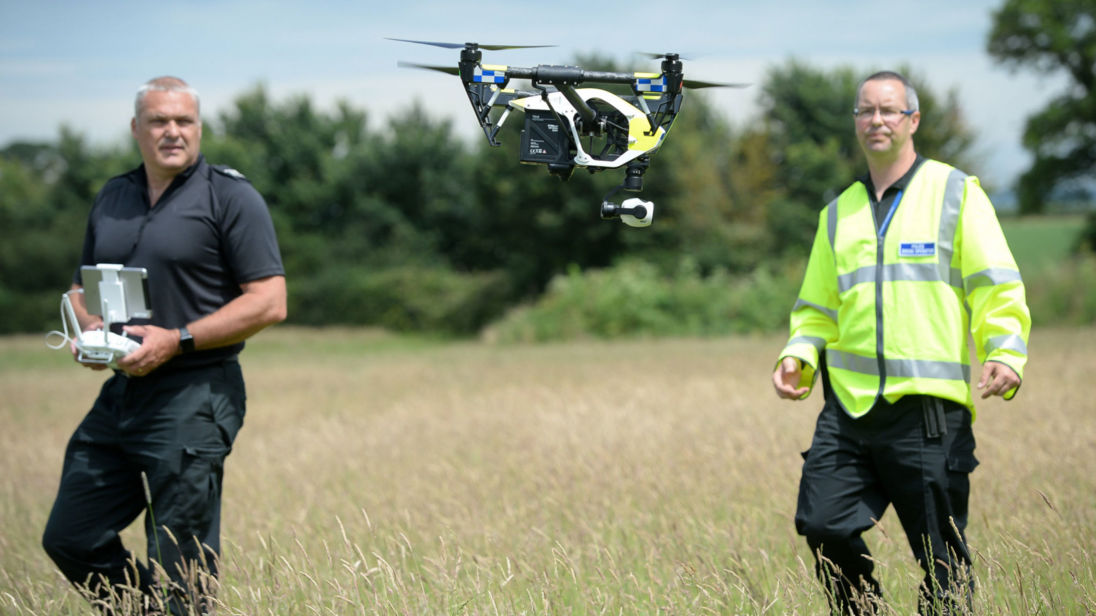Drone users in the UK may have to take safety awareness tests under legislation planned by the government.
Drones weighing more than 250g could also be banned from flying near airports, or above 400 ft, in a crackdown on unsafe flying.
Police will also be given new powers to seize and ground drones which may have been used in criminal activity.
The bill has been welcomed by the pilots’ union, which has warned of near misses involving drones and aircraft.
Balpa said there had been 81 incidents so far this year – up from 71 in 2016 and 29 in 2015.
The union’s general secretary, Brian Strutton, said: “These proposals are a step towards the safe integration of drones, but until the new rules are in place the threat of a serious collision remains.”
In July a drone flew directly over the wing of a large passenger jet as it came into land at London’s Gatwick Airport, which a report said had put 130 lives at risk
The proposed bill – to be published in spring 2018 – would ensure that owners of drones weighing more than 250g would need to register and sit a test.
Drone pilot and trainer Elliott Corke, director of HexCam, said most recreationally and commercially-used drones in use weighed more than 250g, apart from the cheap toy versions.
He said that many new users were surprised by how many rules around drone usage already exist, under the Civil Aviation Authority’s Drone Code.
He said there was a “degree of frustration” however that the rules were not being enforced effectively, allowing criminal activity to take place.
Serena Kennedy, Assistant Chief Constable of the National Police Chiefs Council (NPCC), said: “At the moment we’re using other bits of legislation – the Civil Aviation Authority’s – to enable us to take action.”
“This draft legislation will give us the powers we need to tackle drones when they are being used for criminal purposes.”
She said it would help police tackle the “increasing problem” of drones delivering items, such as drugs and mobile phones, to prisons.
She said the legislation could allow police to look at how they can protect prison establishments from criminal drone activity through geo-fencing, which programmes no-fly zones into drones using GPS co-ordinates.
Christian Struwe, head of European public policy at drone maker DJI, warned that some of the proposals may be “difficult to police” – for example the height restriction.
But he said: “The good thing is that as an industry we are already working on it. We can limit how high they can fly.”
Mr Struwe pointed out that there was no “hard limit” on how close drones could fly to airports. “The current wording is that you should stay well clear,” he said.
He welcomed the proposals to limit the “bad use” of drones, adding that it was important people were aware there was regulation they needed to follow.
Mr Corke agreed that there was a “lack of awareness” of the Drone Code, and said he was frustrated by the lack of focus on practical training.
“Most people don’t read the manual or learn the safety features before they use their drones”, he said, adding that many did not know what to do if something malfunctioned.
Alongside the new laws, the government is also keen to develop technology allowing the greater use of drones for tasks including deliveries of everything from shopping to human organs.
The transport minster, Lady Sugg, said the government wanted to strike the right balance between harnessing drone potential and ensuring they are not misused.
“We’re bringing forward this legislation in order to ensure that drones can be used safely, whilst also addressing some of the safety and privacy concerns that people have,” she said.
The government is also working with drone manufacturers on technology which produces virtual barriers, to stop the machines operating in restricted areas.




